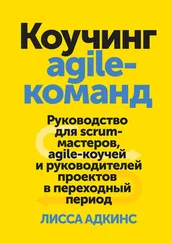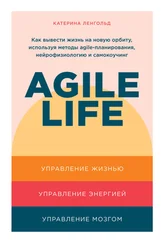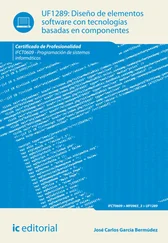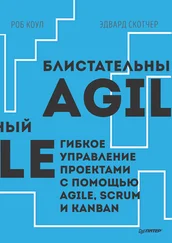On the third year, I commented to my now 12-year-old, Cameron, that it looked like we had more dandelions than the previous year. He said, "Sure. Last year I ran around, dancing and waving all the white dandelions around. When Sean asked why I wasn't just putting them into the bag, I said, 'I'm planting money for next year!'"
If I had that much trouble with that simple situation, how much harder is it to find an appropriate reward for creating software? Should you reward
· Lines of code sent to the test department?
· Low defect rates delivered to the test department?
· Function points delivered each month?
· Number of lines reused from a corporate library? In a Dilbert cartoon, the manager offers rewards related to the number of program bugs discovered. A programmer immediately announces: "I'm writing myself a minivan this afternoon!" (How like the dandelions!)
Even if you can name an appropriate reward structure, what does the organization actually reward? Is it aligned with what is most important for the company? Lines-of-Code-Based Pay
A large company I dare not name ran an initiative to encourage reuse. Programmers' performance, however, was evaluated based on the number of lines of code sent to the test department each month. One person I knew incorporated components from the company's reuse library, as encouraged. She was, however, only given credit for the lines she wrote herself, not those she reused. As a result, she received a low evaluation for her programming performance.
Programmers detect the mismatch and sometimes find subtle ways in which to retaliate. Goldplating
A team leader in a small start-up company complained to me that one of the programmers was adding unnecessary complexity to his design—"goldplating" it—to make it more "interesting" for himself.
When we looked at the matter together, we saw that this person was earning a small, fixed salary in a high-risk position in a start-up company. His risk exposure for working there was high, his reward low. He had evidently made his own self-reward scheme, inventing "cool" code that either would make his daily life interesting or would enhance his employability for the next job.
This sort of mismatch leads to programmers behaving in ways that hurt the company, just as Cameron's "investment" view of dandelion picking hurt my plans for the back yard.
One person wrote to me that he feels stock options are a form of reward that aligns the good of the company with the programmer's behavior. He wrote that he is now working in maintenance, not because it is more fun but because it is the best way to protect his stock ownership in the company.
Reward schemes are an even more slippery subject than I have implied so far, though. Alfie Kohn (1999) writes that rewards actually reduce the intrinsic joy and output quality of an otherwise fun activity:
"Young children who are rewarded for drawing are less likely to draw on their own than are children who draw just for the fun of it. Teenagers offered rewards for playing word games enjoy the games less and do not do as well as those who play with no rewards. Employees who are praised for meeting a manager's expectations suffer a drop in motivation. ... In one study, girls in the fifth and sixth grades tutored younger children much less effectively if they were promised free movie tickets for teaching well. The study, by James Gabarino, now president of Chicago's Erikson Institute for Advanced Studies in Child Development, showed that tutors working for the reward took longer to communicate ideas, got frustrated more easily, and did a poorer job in the end than those who were not rewarded."
If rewarding intrinsically motivated behavior destroys intrinsic motivation, what rewards might retain a person's intrinsic motivation? · Pride in work
· Pride in accomplishment
· Pride in contribution
Pride in Work
Pride in work is exemplified by an ad for Scotch whiskey that I saw some years ago (sorry, it was long enough ago that I have to paraphrase this example). The ad ran something like this: "If you want a set of hand-carved golf clubs from Ian McGregor, you'll have to wait two years. There are three people ahead of you. (Good things take time)."
The ad made it clear that Ian McGregor took pride in his work, and as a result, he did an outstanding job (as did the Scotch distillery, by extension). The clientele could tell the difference and were willing to wait.
I only recently became aware of the possible role that pride-in-work might play on a project, but it wasn't long before I heard a programmer say this:
"Well, the system's OK... I mean it functions, but I can't really take any pride in my work. I'd like to go home feeling good about my program, but I don't. It's just a big mess that barely works."
He continued by saying that he wasn't really happy with his job, even though things were "working."
Pride in Accomplishment
Winning is a great reward. Completing something counts as a "small win" (Weick 2001) and is also powerful.
In software, we create an early win by delivering running, tested, useful code quickly. Using the principle of small wins as a motivating reward, a team delivers as early as possible the smallest thing that will count as a win for the team. That early delivery demonstrates to both the sponsor and the team that the team can work together and deliver. It boosts the morale of both.
To keep with Weick's principle of small wins, the team will then deliver more running, tested, useful function at regular intervals. This is the "Early and Regular Delivery" strategy underlying incremental delivery, described in [provide title first ](Cockburn [insert date]).
One question that arises with Early and Regular Delivery is what to deliver first. On the one hand, it seems a good idea to leave the hardest thing until the end so that the team knows everything possible about the system before attacking the hardest problem. This is the "hardest-last" strategy. It has a surprisingly bad track record, stemming from the fact that many software systems are undertaken that simply can't be built by the team of people assigned. Continually deferring the hardest part to the end, the project schedule does not become more reliable over time but stays unstable until the last piece of design magic is found ... or the sponsors run out of money.
The opposite strategy is to get the hardest part out of the way, using a "worst-things-first" strategy. This is better, but it has a weakness in that if the team cannot solve the hardest problem right away, no one knows what is wrong: Is the problem too hard? Is the team wrong? Is the process wrong? Are the tools wrong?
The repaired strategy is "simplest first, worst second." By constructing a "walking skeleton," a barely connected version of the system that can handle just one small type of action, the team learns how to work together and gains an early win.
With one victory under its collective belt, the team is in a stronger position to attack the worst problem. If the team can succeed with this, it once again gains doubly: The hardest part of the project is over (stabilizing the project plan), and the team accomplishes a major win.
If the team is not yet strong enough to attack the worst problem, team members attack the hardest problem they are sure they can solve. This gives them more practice on their assignment, a bigger win for their morale, and greater confidence in their ability to attack the hardest problem. They continue in this way until they solve the hardest problem, and the project starts to become easier.
Pride in Contribution
The third possible intrinsic reward is pride in contribution. People's desire to contribute is so strong that I regularly see programmers damage their health and private lives in their effort to contribute to the team.
Читать дальше










